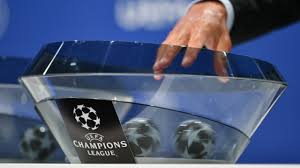August 19 – When the Champions League proper begins next month, it will look nothing like the previous format after undergoing perhaps the most significant revamp in the competition’s history.
Europe’s premier club competition has abandoned the traditional group stage structure as it enters its 33rd season.
Instead of 32 competing sides being divided into eight groups of four in an attempt to reach the group stage, 36 teams will form a single league.
Each team will play four games at home and four games away, two more than under the previous format. All eight encounters will be against eight different opponents.
The 36 clubs will be seeded into four different pots based on their individual club coefficient at the start of the season. Each team will face two sides from each pot, one at home and one away.
The top eight sides in the league after the competition’s first phase will progress directly to the last-16. Teams placed ninth to 24th will negotiate a play-off round, while teams that finish 25th or lower will be eliminated from all European competition – and not, crucially, demoted to the Europa league which always seemed an unfair process giving some sides two bites at the cherry.
The computerised draw for the league phase will be held on August 29 in Monaco, with the competition getting under way in mid-September.
Similar changes will be made to the Europa League and Europa Conference League formats, with 36 teams in each.
Teams in the Europa League will have eight matches against eight different opponents in the league phase.
In the Europa Conference League – renamed the UEFA Conference League – teams will have six matches against six different opponents in the league phase. The UEFA Conference League games will be played between September and December.
The changes – a step into the unknown for UEFA – are bound to prove contentious and add more games to an already hectic calendar for players. But for all the rhetoric about giving more teams the chance to compete, the bottom line is money with four more teams in the initial league stage and each club getting two more games.
The new format also brings more jeopardy into the competition with clubs facing ‘unknown’ opposition more frequently rather than fulfilling fixures in what was starting to look like a somewhat tired group stage format.
It also means more TV money and more gate receipts in the hope that UEFA can further stave off the elephant in the room – a breakaway European super league.
Contact the writer of this story at moc.l1745270793labto1745270793ofdlr1745270793owedi1745270793sni@w1745270793ahsra1745270793w.wer1745270793dna1745270793

